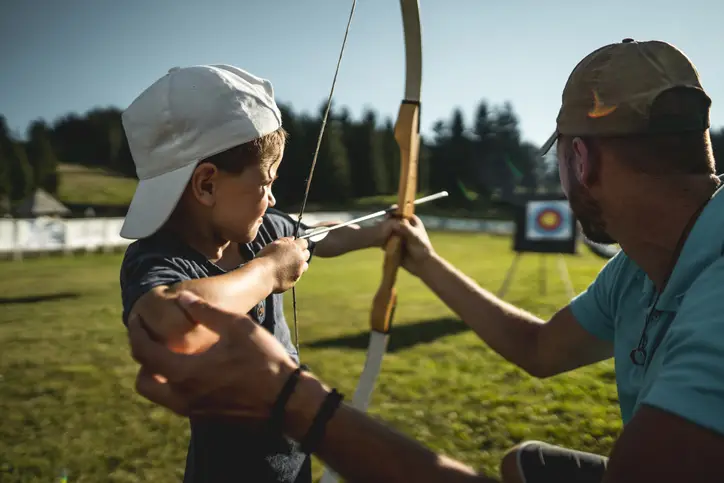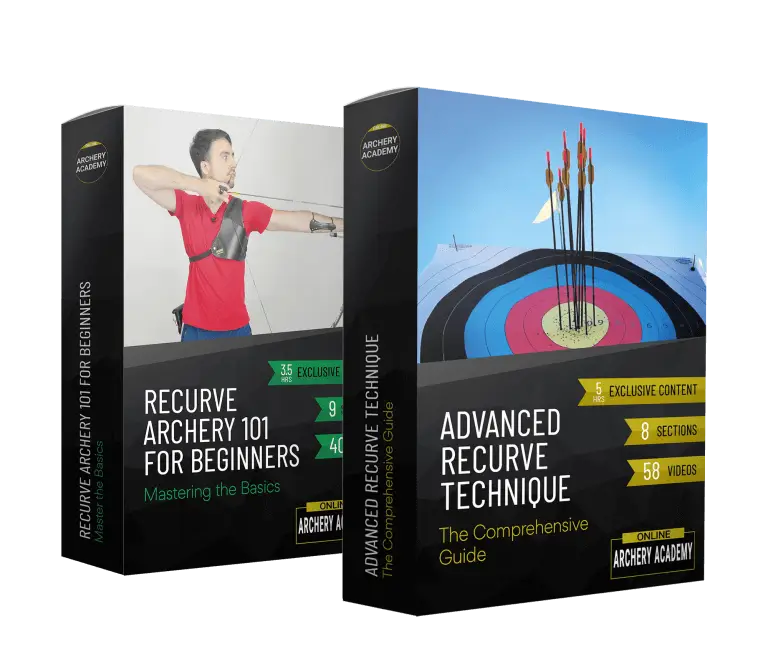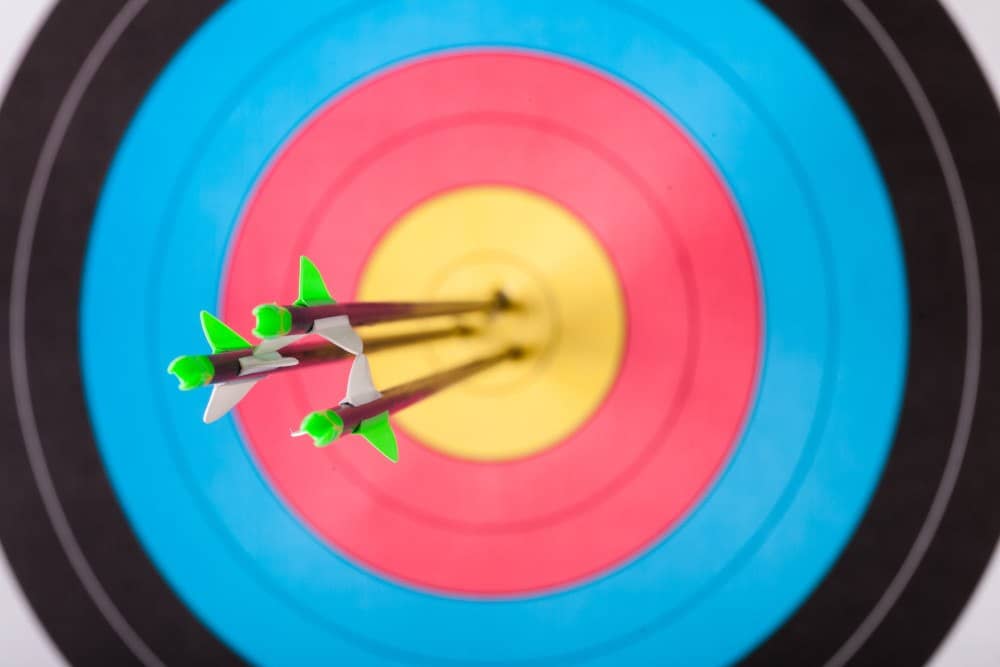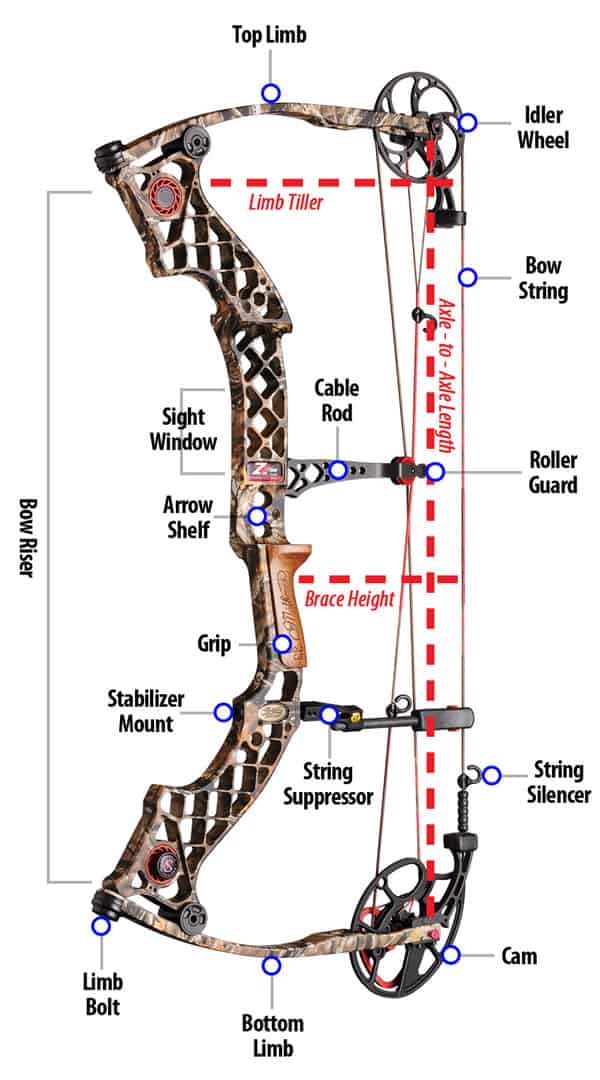Looking to get into archery but don’t know where to start? Or maybe you’re already a competitive athlete and need a second pair of eyes to get you ready for your next meet. If you choose the right one, an archery instructor can help you with just about any aspect of the sport and push you to improve. To find the right archery coach, we’ve created this simple eight-step guide with the tools and information you need.
Step 1: Figure Out Your Goals
You can’t find an archery coach if you don’t know what you want to get out of training. After all, you may just like going to the range to have a little fun and blow off steam, in which case, you might not need a coach at all.
If you want a coach, you should have some goals in mind, and then you can find a specialized coach that’s experienced in helping archers meet the same types of goals. Here are some common goals many people have when they start looking for an archery instructor:
Learning the basics
Fixing bad habits
Joining a team
Taking their skills to the next level
Competing in Olympic archery
Preparing to bowhunt
For all these goals, there’s an instructor out there who can help you, but it might not be the same instructor for every goal. That’s why it’s so important to know what you want before you start talking to potential coaches.
Step 2: Assess Your Skill Level
You can’t find the best coach for you without being honest with yourself about your skill level. Instructors often focus on a particular skill level, so you won’t be taking full advantage if you don’t find one that matches.
For example, advanced archery coaches spend most of their time helping highly skilled competitive archers fine-tune their skills and shift their shots by millimeters. While they can probably still teach someone how to start shooting, they don’t have the extensive experience doing so and may not have the patience either.
You should at least rank yourself in one of these four categories that you can communicate to potential coaches:
New to archery: You have no archery experience and need help learning how to shoot a bow.
Beginner: You know how to shoot a bow, but you have little experience and can barely hit the target.
Intermediate: You have a good grasp of shooting but wouldn’t be winning competitions anytime soon. You need to hone your skills and take things to the next level.
Advanced: You can hit the bullseye easily and could even be a coach yourself. You need support and a second set of eyes to address the nuances of shooting and win your next meet.
Step 3: Certified or Uncertified?
Once you’ve decided on your skill level, you can decide if you want a certified archery coach or a friend, family member or member of your local club that doesn’t have an official certification. If you have competitive ambitions, we definitely recommend a certified instructor. But if you want to bowhunt and just need to learn to shoot and hit a small target, a friend who already knows how should be able to teach you.
Step 4: Group Class or One-on-One?
You also have to decide if you want group classes or an individual learning experience. At the end of the day, this is mostly a question of budget. Group classes are less expensive, but you receive less attention and personalized instruction.
Group classes are a particularly good choice for beginners. You can take a few classes and quickly learn how to shoot a bow with a decent amount of accuracy. However, even if you’re an advanced archer, joining a team with a coach is a good way to hone your skills without the expense of individual sessions.
Step 5: What Level of Certification Should You Look For?
If you decide you want a certified coach, you then have to decide what level of certification you want. Numerous organizations provide certifications such as USA Archery, World Archery, Scholastic 3-D Archery, and the National Archery in the Schools Program.
A certified instructor has passed a number of courses and meets certain standards. Plus, they’ve had to pass a background check and learn about other aspects of archery such as maintenance and safety.
As the body that oversees Olympic archery in the United States, USA Archery provides one of the most respected certification schemes. Instructors can have one of five certification levels, which reflects the standards they’ve met and the types of classes they can give. You should decide what level of instructor you need based on your needs.
Level 1
A coach with Level 1 Archery Instructor Certification is qualified to introduce beginners to the world of archery in group classes. These certified instructors have undergone basic training, focusing on range safety, set up, and simple shooting. They are particularly skilled at teaching the Explore Archery Program, which covers basics for absolute beginners interested in the sport.
If you’re totally new to archery and want to try it out in a group setting, a Level 1 certified instructor is a good choice.
Level 2
Level 2 instructors have a bit more versatility. They have passed more intensive standards and can give you more detailed training with equipment, accessories, and techniques for both compound and recurve bows. Most archery shop owners and staff have at least Level 2.
Nevertheless, Level 2 is still focused on group classes, not individual training.
Level 3 NTS
NTS stands for National Training System and represents a step up in terms of the training the instructor had to go through. Level 3 NTS is the minimum required by USA Archery to teach individual classes. Instructors at this level have advanced skills and have taken further courses in coaching philosophy, competition preparation, the mental aspect of archery, and fine-tuning equipment as well as bow maintenance.
Whether an intermediate archer who loves the sport and wants to improve or an advanced archer who wants to get ready for your next meet, it’s a good idea to consider a coach with at least Level 3 NTS.
Level 4 NTS
Level 4 NTS instructors have the skills to train advanced archers, especially those taking part in regional or national archery competitions. These coaches have extensive knowledge in sports science and psychology, so they can address every detail of the competitive archery world.
Level 5 NTS
Level 5 NTS is the highest certification available for archery coaches. It requires the highest standards and the most training. You’re unlikely to find a coach with this certification at your local club because they’re usually training Olympic archers and other high-level athletes for international competitions.
Step 6: Find a Coach
Now you know what kind of coach you want, but how do you find them? One of the easiest ways is to ask at your local club or shop. If you don’t know where your local club is located or their contact information, USA Archery has a tool for just that.
However, if you’re anxious to find a coach, you can skip that step altogether and go straight to contacting potential coaches. USA Archery also has a great find-a-coach tool that shows you instructors and coaches in your area. It even allows you to filter by certification level.
Of course, if you just want an uncertified coach, there’s no need to use these tools. Just ask around at your local archery shop or among friends and family till you find someone with the knowledge you want.
Step 7: See If They’re a Good Fit
It’s important to remember that when you’ve contacted a potential coach and arranged a lesson, you don’t have to continue using that coach forever. Coaches understand that different students need different things, and if it seems like a coach isn’t a good fit for you, it’s best for both parties that you continue looking.
The primary thing you should look for in a coach is their own knowledge and skill. Obviously they can only pass on to you that they can do themselves. That said, you should also look for:
Teaching skills: Just because someone is good at something, that doesn’t mean they can easily train someone else to be good at it. Make sure your coach also knows how to teach and communicate information clearly and effectively.
Teaching style: Not everyone learns the same way. You may need a coach who is more hands on, so if you have a first lesson with an instructor who only teaches verbally, it might not be a good fit.
Personality: Your personality and your coach’s need to click. For instance, if you do well under pressure, an aggressive coach that pushes you might work well, but if you get overwhelmed easily, you need someone with a lot of patience who can calm you down.
Flexibility and schedule: If you’re a busy person and plan on fitting in archery classes when you have free time, a coach with a full training roster probably isn’t a good choice for you. Make sure a potential coach has a schedule that works with yours.
Step 8: Keep Practicing Consistently
Working with an archery coach has a lot of benefits. It can help you break bad habits and address small details that end up greatly improving your accuracy. Whether a beginner interested in learning the sport and taking up a new hobby or an advanced archer who wants to take home the gold at your next meet, an instructor can make a big difference.
However, that’s only possible if you stay disciplined and follow a consistent training plan with your coach that involves regular practice and lessons. Listen to your coach and keep practicing!




